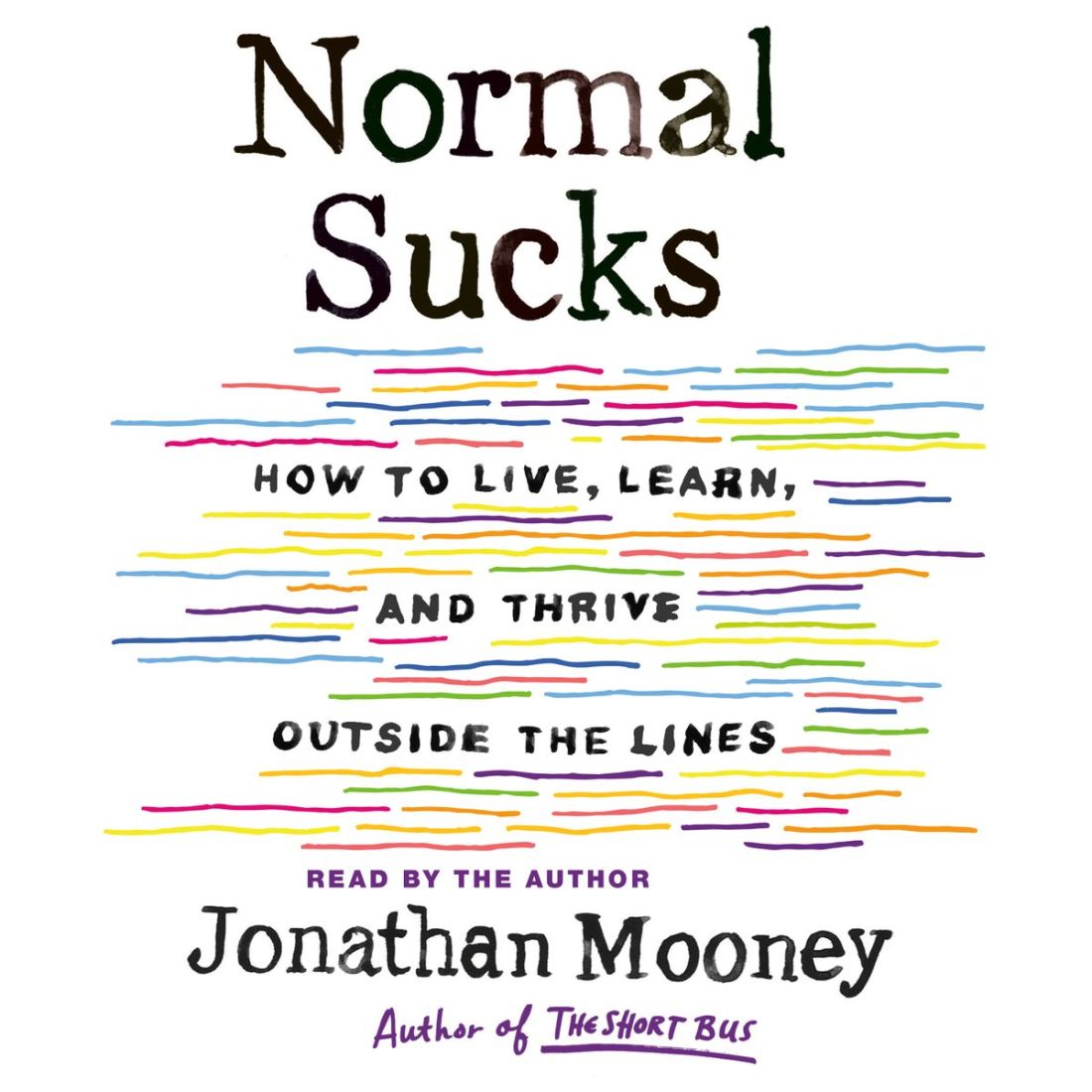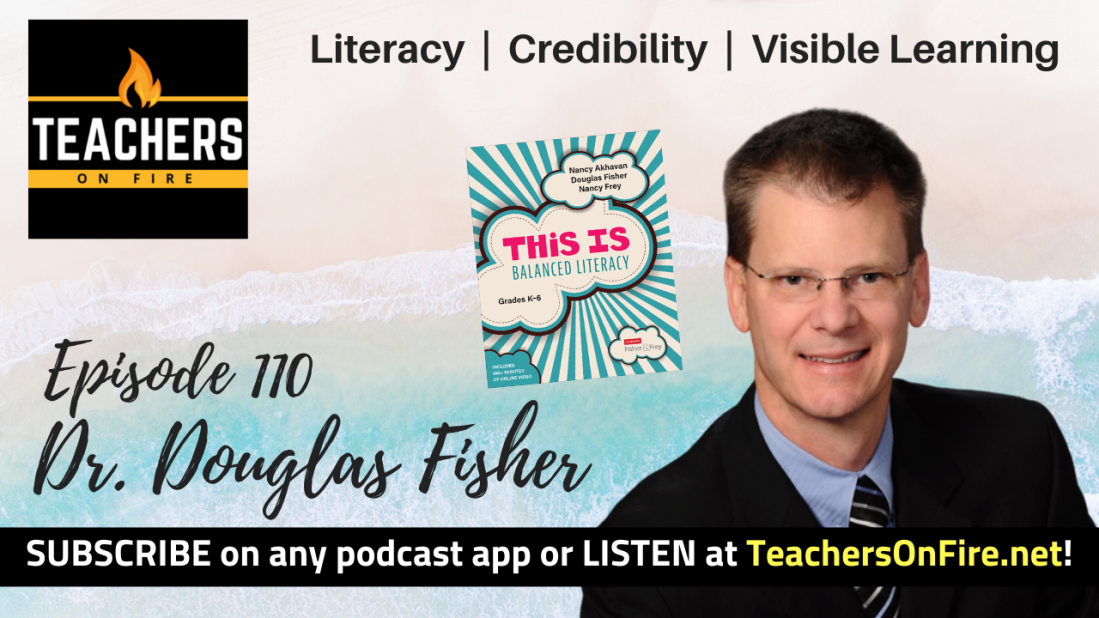Meet Dr. Douglas Fisher
Dr. DOUGLAS FISHER is a Professor of Educational Leadership at San Diego State University, where he trains future administrators and institutional leaders. He is also a teacher leader at Health Sciences High & Middle College, a high school that he co-founded some years ago as a kind of lab, a practical context in which to continue the work of education research and innovation on a practical level.
A Career in Literacy
Dr. Fisher is a highly accomplished researcher and author in the field of education. He is a member of the California Reading Hall of Fame and is the recipient of an International Reading Association Celebrate Literacy Award, the Farmer award for excellence in writing from the National Council of Teachers of English, and the Christa McAuliffe award for excellence in teacher education.
He has published numerous articles and books on student achievement and literacy, including Text-Complexity: Raising Rigor in Reading (with Nancy Frey and Diane Lapp), Checking for Understanding (with Nancy Frey) and Common Core English Language Arts in a PLC at Work (with Nancy Frey). He is also a board member of the International Reading Association and a past board member of the Literacy Research Association.
Disconnection and a Change in Perspective
Around 15 years ago, Dr. Fisher found himself in a trying situation with his students. He was struggling to connect with his students in the ways that he was accustomed to connecting, and relationships were not coming easily. The experience was discouraging enough that he found himself starting to question whether the profession was even for him.
“Parents send us the kids they have. They don’t keep the good ones at home.”
Then, while attending a conference later that year, he heard a speaker say “Parents send us the kids they have. They don’t keep the good ones at home.” This quote spoke to him in a profound way, filling him with renewed gratefulness for the privilege we hold as educators to care for the children of others.
The public trusts us with the responsibility of teaching, training, and “loving up” their kids, Dr. Fisher observes. Sometimes we just need that reminder of the tremendous honor that is education. After the conference, Dr. Fisher returned to the classroom with renewed commitment and dedication and has never looked back since.
Balanced Literacy
Dr. Fisher recently co-authored This Is Balanced Literacy, Grades K-6. When asked to elaborate further on this idea of balanced literacy, Doug is quick to point out that the concept has been around since the 1990s, when there was a lot of debate going on between phonics and whole language approaches. Kids need sufficient experiences with foundational skills, experts argued, including systematic and sequenced steps to growth in literacy. They also need meaning-making experiences that include reading comprehension and thinking about writing.
Since this time in education, the conversation about balanced literacy has largely moved to discussions about the value of whole group versus small group instruction. In this book, Doug and his co-authors sought to move the literacy conversation back to a focus on the balance between skills and knowledge learning. As they developed their research with this focus, they also started to take a closer look at the balance between reading and writing.
Current estimates suggest that the average elementary classroom spends up to 80% of their literacy instructional minutes on reading and 20% on writing. In the words of one of Doug’s colleagues, “Every writer can read, but not every reader can write.” Truly balanced literacy instruction requires us to ask these questions of our practice:
- Are we using our literacy minutes effectively?
- Are we making sure that our students are properly building both reading and writing skills?
- Are we including both direct and dialogic instruction?
- Are we making sure that our students are consuming both informational and narrative texts?
Studies show that narrative or fictional texts dominate the reading diets of elementary students – informational and expository texts may not be receiving the attention they deserve.
So how do we balance these tensions: direct and dialogic instruction, narrative and expository, reading and writing, skills and knowledge? This book offers the authors’ take on the best ways to thoughtfully integrate all of these methods and strategies in the literacy classroom.
For more on balanced literacy, listen to Doug’s two co-authors explore this concept further.
The Balanced Literacy Workshop from Corwin Press
Dr. Fisher and his co-authors currently offer a workshop that explores these strategies further in practical ways. This professional development event includes deep dives into reading instruction, writing instruction, assessing learning, impactful teaching practices, class engagement, coaching, and more. Workshop attendees will ask:
- What should balanced literacy look like in the classroom?
- What are the evidence-based strategies that we can adopt in the whole class environment?
- How can we engage students in high-level collaboration using academic language that allows the teacher to sit down with small groups of students for more specific, targeted instruction?
There is no one way to teach literacy, Dr. Fisher points out. There are many right ways, but there are also wrong ways. This workshop unpacks the menu of effective options for instruction that literacy teachers have at their disposal.
A Quick Suggestion on Literacy Instruction
When asked for one quick tip or perspective on literacy instruction, Dr. Fisher reminds us that our literacy strategies accomplish different things at different stages of student learning. There’s nothing wrong with surface learning and the strategies that bring learners to that level, but when we move from surface to deep learning, our tools change, and when we move from deep to transfer levels of learning, our strategies change again.
As teachers, the question must be: what will unlock literacy for that learner right now, exactly where they are?
Visible Learning Plus
Visible Learning Plus is a specialized coaching program offered by Corwin Press, Dr. Fisher’s publisher. In Corwin’s words, this program will “Connect and harmonize existing school and system initiatives, build internal capacity, and harness the collaborative energy of educators to accelerate student learning and maximize time, energy, resources, and impact.”
In simplest terms, Visible Learning Plus mobilizes John Hattie’s research on learning and helps schools understand and elevate the impact of their practices on student learning. Corwin’s coaches and consultants help school leaders and teams get to the bottom of the question of impact: Is what we are doing working? The program also seeks to strengthen collective efficacy – how can teaching teams improve their beliefs, practices, and procedures in a cohesive, engaged, and synchronized way.
Teacher Credibility
One thing that has really captured Dr. Fisher’s thinking of late is the whole issue of teacher credibility and its impact on learning. He’s done a little bit of writing on this topic and has started to dig deeper into the research in order to learn more. When students view their teachers as credible, they learn a lot more from them. The following critical questions determine your credibility as a teacher:
- Are you trustworthy?
- Are you competent?
- Do you show dynamism or passion?
- Do you have proximity and closeness with your students?
All of these factors influence student learning in powerful ways, and the good news is that they are changeable behaviors. Significantly, a teacher can employ proven instructional strategies, but if their students do not view them as credible, the strategies lose their effectiveness. As professional teams and learning communities, we should be constantly asking how can we help each other improve our credibility in the eyes of our students.
Personal Passions: Travel and Exercise
When he’s away from his research and the halls of academia, the things that most energize Dr. Fisher are travel and exercise. He never stays with one mode of exercise for too long, so his activities range from running to spin class to trapeze.
A Personal Productivity Tip: Block Time for Writing
Dr. Fisher puts time into his calendar to do his writing. This is blocked time that he treats as a job – he does not allow email, phone calls, or other distractions to interfere. He believes that every educator has a book in them, and many educators want to write, but it requires making that time non-negotiable. Although he is thrilled when other people enjoy and consume his writing, he writes primarily to clarify his own thinking.
Voices & Resources That Inspire His Practice
Over on Twitter, Dr. Fisher recommends following the amazing @BreneBrown, renowned speaker and author of such books as Dare to Lead.
In the world of edtech tools, Dr. Fisher is a fan of what PlayPosit can do to improve learner engagement with video content. Get to know this tool a bit better by following @PlayPosit.
 One non-educational book that Dr. Fisher and his team have gained a lot from in the last year is Contagious Culture: Show Up, Set the Tone, and Intentionally Create an Organization That Thrives by Anese Cavanaugh. Another title that has done a great job of rethinking how we meet the needs of dyslexic learners is Normal Sucks: How to Live, Learn, and Thrive Outside the Lines by Jonathan Mooney.
One non-educational book that Dr. Fisher and his team have gained a lot from in the last year is Contagious Culture: Show Up, Set the Tone, and Intentionally Create an Organization That Thrives by Anese Cavanaugh. Another title that has done a great job of rethinking how we meet the needs of dyslexic learners is Normal Sucks: How to Live, Learn, and Thrive Outside the Lines by Jonathan Mooney.
At the top of Doug’s podcast lineup is Cult of Pedagogy by Jennifer Gonzales, one of the largest podcasts in the education space today. If you’re not already following Jennifer on Twitter, connect with her @cultofpedagogy.
On YouTube, there’s no beating the classic TED Talks. Dr. Fisher is still a fan of the medium, the content, and the incredible learning that TED continues to share with the world.
When he has a few minutes for Netflix, Dr. Fisher is watching Money Heist. It’s a fascinating series about a band of bank robbers who plan an elaborate heist in Spain, and Dr. Fisher is also using the series to brush up on his Spanish.
We sign off on this helpful conversation, and Dr. Fisher gives us the best ways to connect with him online. See below for details!
You can connect with Dr. Fisher …
- On Twitter @DFisherSDSU
- On his website at https://www.fisherandfrey.com/
Connect with the Teachers on Fire podcast on social media:
- On Twitter @TeachersOnFire
- On Instagram @TeachersOnFire
- On Facebook @TeachersOnFire
- On LinkedIn: Tim Cavey
- On Medium at The Teachers on Fire Magazine
- On YouTube: Teachers On Fire
Song Track Credits
- Intro: Stand Up (by Mike Cosmo — license purchased at https://taketones.com/)
- Outtro: Bluntedsesh4 (by Tha Silent Partner, courtesy of FreeMusicArchive.org)
